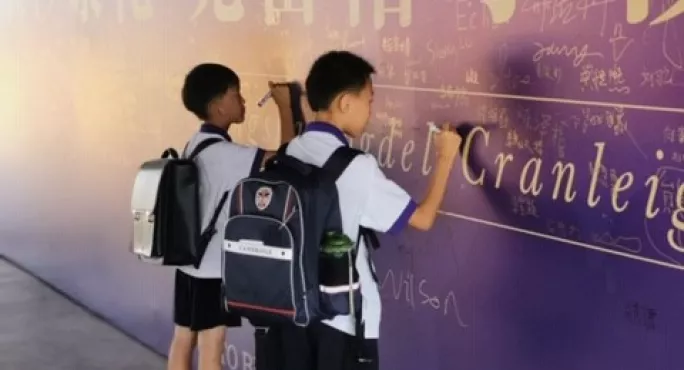“You must be mad!”
If I heard that once over the last six months, I have heard it a thousand times.
How sensible was it to open a new international school during a pandemic?
At Cranleigh Cogdel Changsha School we did just that - and we believe it shows what international collaboration and teamwork can achieve even in the most challenging circumstances.
An ambitious build
From the start, the building programme was ambitious.
A school planned for 2,000 students required immaculate planning and management to ensure that the campus was completed on time and to cost.
The Cogdel team worked extremely hard to complete the task on time, which meant that in August, prospective parents and students could see the real campus.
The school opened with just under 400 students arriving in September, over half of them weekly boarding, and I believe we are the only new school to open in China during the pandemic.
Problems abound
Obviously this has not happened without problems - some predictable for a new school and some not.
For example, trying to market a school in the process of being built but with no students and teachers required some ingenuity.
What the marketing did was to concentrate on the ethos of a school such as Cranleigh UK and show how a broad holistic approach could better prepare the students for life at international universities.
Even so, how does one enrol students and recruit new teachers to a new school that is only just complete with no current students to meet? In fact, the recipe was the same for students, parents and new teachers alike.
Namely, showing them the amazing facilities in the new school, highlighting the ethos of a broad Cranleigh style education and highlighting the clear long-term strategy for the future and a chance for them to be there at its beginning.
Recruitment hurdles
Perhaps the biggest challenge was being able to recruit top-quality foreign teachers who can teach IGCSE, A level and IB when visa restrictions entering China have been some of the strictest (understandably) across the globe.
The solution was to recruit foreign teachers who were already teaching in China since it was likely (and proved to be) impossible to recruit teachers from the UK during the pandemic.
It was decided not to risk having teachers left stranded, unable to enter China and begin their new job.
Even though we hired teachers already in China, we still had to conduct interviews over Zoom and perhaps more focus than usual was placed on references. In the end, this has worked well, combined with bilingual Chinese teachers who have graduated from UK universities.
However, it is hoped that there will be opportunities for more UK trained teachers to join us at the start of next year, recruited through the more normal procedures.
Yet to arrive
Unfortunately, I myself have been unable to get to Changsha in time to welcome the students for the new academic year.
I am waiting for my visa to come through and, although Zoom meetings have saved the day, they are certainly not the same as being onsite. This has put extra pressure on senior members of the team who are at the school.
Needless to say, the SMT and the international teachers have risen to the occasion and the school has greatly benefited from their experience and flexibility.
The students have also settled in quickly and are already making full use of the wonderful facilities available to them.
Overall, the last six months have been hard work but with excellent communication and collaboration between our Chinese partners, we are delighted to be open in the midst of such a uniquely challenging set of circumstances.
Andrew Griffiths is the founding head of Cranleigh China Changsha
